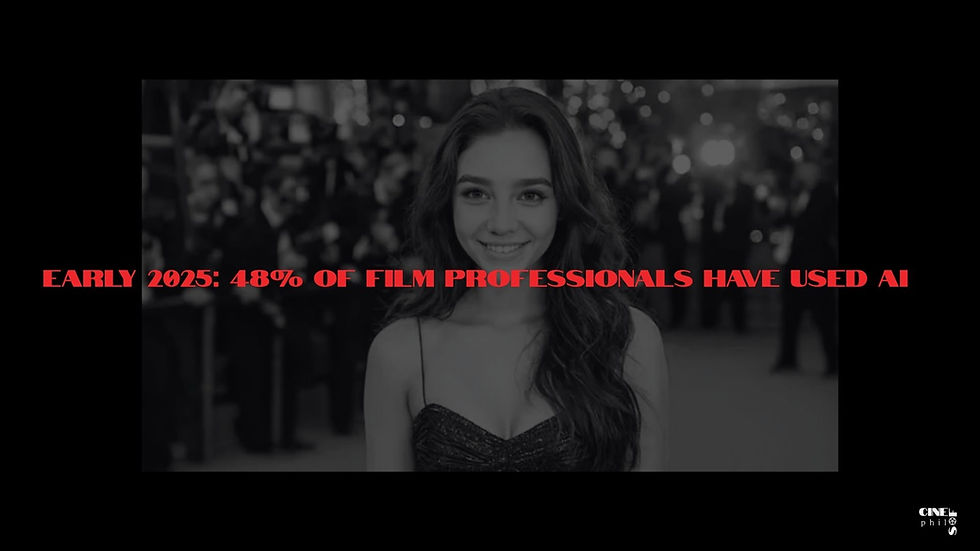Sabrina Carpenter's Summer Smash: Sorority and Strength
- Sofia R. Willcox

- Jul 29, 2024
- 4 min read
If you've been scrolling through short videos on social media lately, you might have come across Sabrina Carpenter. It's no surprise, given that she currently leads the global charts with the hit of the summer in 2024. Let's dive into the bigger picture behind this pop music phenomenon. Remarkably, 2024 marks a decade in Carpenter's career, even though her name became widely known in 2022 with her confessional album Emails I Can't Send.
Carpenter's No. 1 global hit, "Espresso," encapsulates themes of assertiveness, independence, confidence, self-assuredness, and empowerment. Through her lyrics, Carpenter conveys a powerful message of taking control and owning one's destiny. The music video further amplifies these themes. She revolutionizes the narrative through the use of the female gaze, positioning herself as the pilot of her life. Whether she's commanding a boat or driving a car, the imagery is clear: Sabrina Carpenter is in control.
A significant aspect of the video is its purposeful colour scheme. Scenes featuring men are shot in black and white, while those with women are vibrant and colourful. The use of vibrant colours in scenes with women visually represents empowerment and vitality, reinforcing the song’s themes. Meanwhile, the black-and-white depiction of men contrasts sharply with the colourful scenes, underscoring the idea that men are part of the past or outside the core narrative of empowerment. Additionally, her choice of wearing white is symbolic. Traditionally associated with purity and innocence, in this context, it signifies new beginnings. This is especially poignant when followed by a black costume, suggesting mourning. The vintage aesthetics of the video add another layer of depth, as it sits somewhere between the 1950s and 1960s, a time known for its revolutions.
Carpenter embraces the power of femininity, much like last summer's Barbie movie, which encouraged spectators to wear pink while enjoying these empowering anthems. The "pinkification" trend is a significant part of pop culture. However, it's important to recognize how Hollywood has demonized the color over the past three decades, creating an inconsistent link between pink and superficiality.
This association stems from the flawed assumption that ultra-femininity is inherently linked to a lack of substance. This misconception has roots in the second wave of feminism. While it achieved notable progress for white women, it also distanced femininity from feminism. Feminists criticized traditionally feminine elements, viewing them as tools for women to please men, rather than asserting their own identities. For example, the bra-burning protest during the 1968 Miss America pageant symbolized this rejection. Many productions from the 1990s and 2000s portrayed femininity as antagonistic, reinforcing the notion that feminine traits were incompatible with seriousness and substance.
Carpenter’s No. 2 international hit, “Please, please, please,” centres on resilience. In the music video, her character frequently wears pink and red, while her romantic partner is in black. It blends a Bonnie and Clyde vibe with a touch of Tarantino. The contrast between pink/red and black symbolizes the balance between vulnerability and strength, love and danger, innocence and rebellion.
The song "Feather," while not topping the charts, remains one of Carpenter's most played tracks. The lyrics imply a journey of emotional liberation and empowerment following the end of a toxic relationship. Its music video, with its commentary on sexual harassment and machismo, adds another layer of depth to the song’s message.
A common element among these three hits is Carpenter’s diva references, even though she has admitted her influences are Rihanna and Christina Aguilera. Behind one successful woman, there is many holding her back. Her predecessors are reflected in her costumes, from Sharpay Evans (High School Musical) to Lady Gaga (Poker Face), Britney Spears (Baby One More Time), and Madonna (Like a Prayer) through its blend of religious imagery, sensuality, and empowerment. There’s also a self-reference through the use of her songs as a backdrop prior to the start of a new one. Espresso in the police station from please, please, please. Women supporting women is evident, as Carpenter was the opening act for Taylor Swift’s Eras Tour. Additionally, she was discovered through “MileyWorld,” a contest by Miley Cyrus in the early 2000s, which led to her public debut in Girl Meets World (2014-2017).
Carpenter is forging a new dialogue with young women and emerging as a potential voice for Generation Z and Alpha. While famous female singers from previous decades offered empowerment intertwined with sexuality and sensuality in their personas and lyrics, many of their music videos still retained elements of the male gaze. Carpenter, on the other hand, offers a female gaze, confidence, and sensuality. Her stardom fits perfectly in an era where feminism is continuously evolving, and self-discovery is trending. She captivates a legion of fans worldwide who can resonate with her message. A notable point is that contemporary feminism emphasizes inclusion. The diversity in these music videos feels outdated and limited to male characters while perpetuating the thinness dictatorship for women. Even so, Carpenter leverages her influence in support of causes like charity, senior citizens’ isolation, mental health, animal welfare, and LGBT+ rights.





Comments